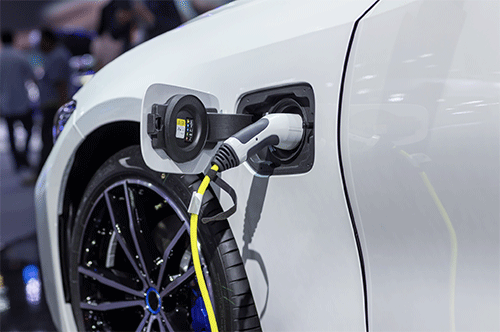The Motor Vehicle Accident Fund of Namibia is determined not to lose out on its main source of income, namely fuel levies, by ensuring it also charges electric vehicles to make use of Namibian roads.
This is as the motoring world, including
southern Africa, accelerates a transition from internal combustion engines to EVs.
However, since EVs do not need to visit a service station, the MVA is still engaging relevant stakeholders on exactly how these levies will be collected.
“Further impacting the fuel levy revenue negatively is the declining trend in fuel volumes consumed over time. This trend is likely to be observed over a longer term as the world shifts its focus to lesser use of fossil fuels, and more electric vehicles are used on the national road. The fund has commenced engagements to ensure levies are collected from electric vehicles as well,” reads an auditor general (AG) report on the MVA for the year ended 31 March 2023.
Government enacted a resolution during the
fiscal year that ended on 31 March 2023 to temporarily lower fuel levies for the MVA Fund by 25% – from N$0.477 to N$0.358 per litre.
This was in an effort to lessen the overall impact of rapidly rising fuel prices and escalating living costs exacerbated by Covid-19.
The reduction was in effect for five months, commencing from May 2022 to September
2022. This resulted in the MVA recording significantly lower revenue from the fuel levy revenue for the year ended 31 March 2023.
The AG report added that MVA fuel levy income for the year under review was N$471 565 053, while it was N$529 153 425 in 2022. The report continued that overall, fuel levy revenue for the year also decreased to N$575 902 575 from the N$610 845 581 of 2022.
The AG’s report was tabled in the National Assembly last week by finance minister Iipumbu Shiimi. The MVA is mandated to design, promote and implement crash and injury prevention measures, as well as to provide assistance and benefits to all people injured and the dependents of those killed in road crashes.
The fund has paid N$25 million for 1 552 personal accident claims between January and August of this year, according to MVA CEO Rosalia Martins-Hausiku.
With a maximum payout of N$100 000 for serious injuries, she pointed out that claims varied depending on the damage suffered.
The CEO earlier this month stated the fund typically pays between N$50 000 and N$60 000, and that it also spends approximately N$200 million annually on medical services, of which hospitals account for 45% to 50%, followed by medical specialists. She revealed that in 2022, the fund had paid N$62 million for 2 582 claims and N$71 million for 2 741 claims in 2021.
“The amount paid so far for 2023 may increase as we progress towards the end of the year because some people are still coming to claim since there is a 12-month grace period,” Martins-Hausiku explained.
Levies imposed on Namibian petrol and diesel prices include a customs and excise duty for the SACU Revenue Pool; a National Energy Fund
(NEF) fuel levy (comprising the fuel equalisation levy, Namcor levy and National Oil Storage Facility levy), road user charges to the Road Fund Administration for roads maintenance; fuel tax collected by the Ministry of Finance for the State Revenue Fund, and the MVA Fund levy, which is used to finance the activities of the MVA Fund, such as providing financial assistance to road accident victims.
Road user charges go directly to the Roads Authority and Road Fund Administration, while the MVA levy is collected by the mines and energy ministry into the NEF and is paid out monthly to MVA. –mndjavera@nepc.com.na


